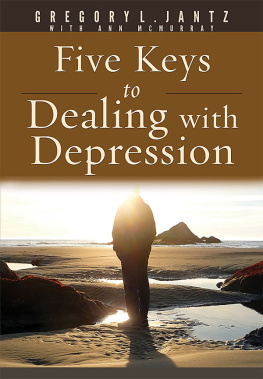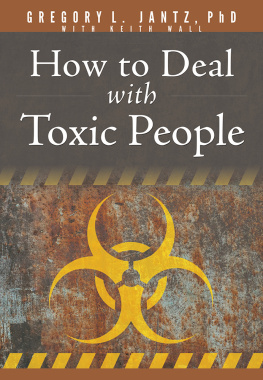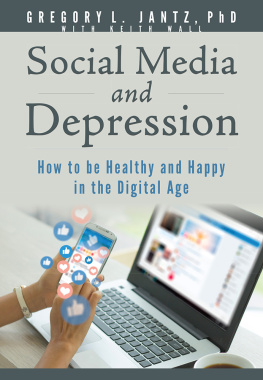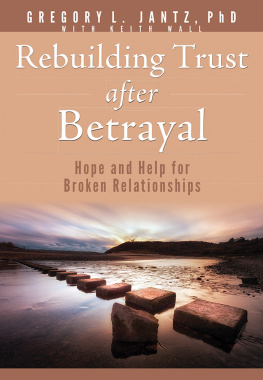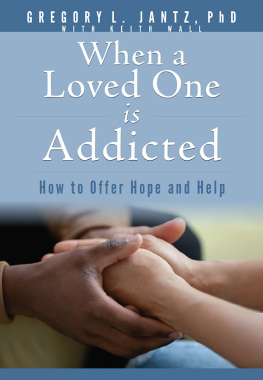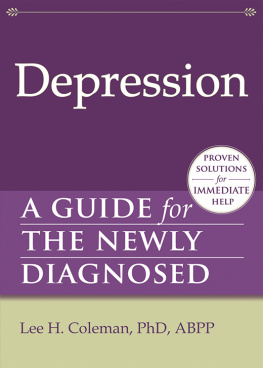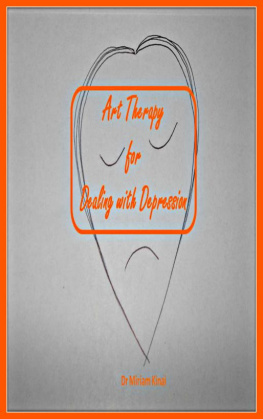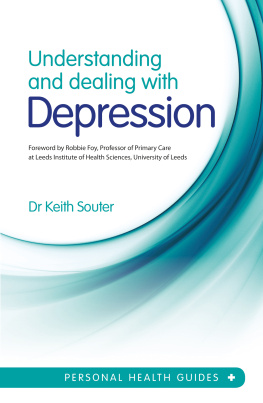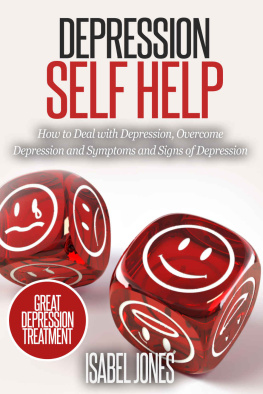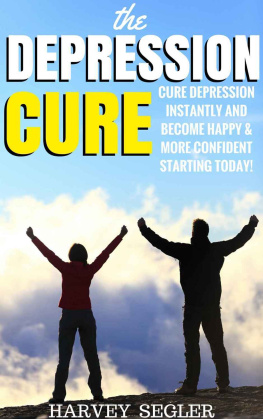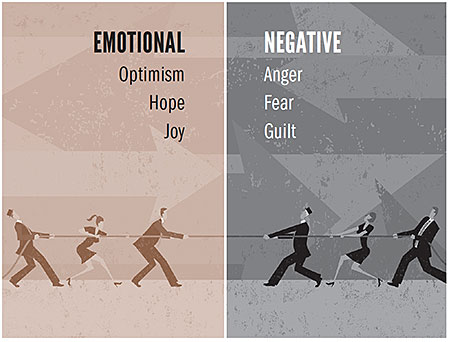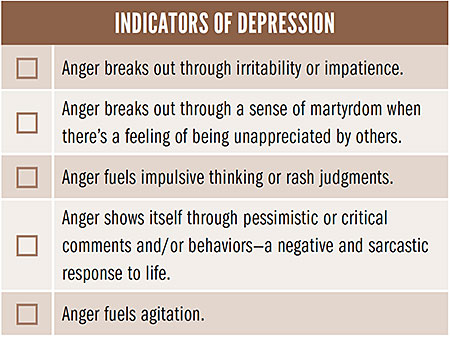The printed version of this eBook is Five Keys to Dealing with Depression , ISBN-13: 9781628623628
Rose Publishing is in no way liable for any context, change of content, or activity for the websites listed. Inclusion of a work does not necessarily mean endorsement of all its contents or of other works by the same author(s).
All rights reserved. No part of this publication may be reproduced, stored in a retrieval system, posted on the Internet, or transmitted in any form or by any means without the prior written permission of the publisher. The only exception is brief quotations in printed reviews.
All scripture quotations, unless otherwise indicated, are taken from the Holy Bible, New International Version, NIV. Copyright 1973, 1978, 1984, 2011 by Biblica, Inc. Used by permission of Zondervan. All rights reserved worldwide. www.zondervan.com The NIV and New International Version are trademarks registered in the United States Patent and Trademark Office by Biblica, Inc.
The views and opinions expressed in this book are those of the author(s) and do not necessarily express the views of Aspire Press/Rose Publishing Inc, nor is this book intended to be a substitute for mental health treatment or professional counseling.
It is illegal to photocopy, transmit electronically, post on the internet, or reproduce this book in whole or in part in any form.

2016 Gregory L. Jantz
Aspire Press, an imprint of Hendrickson Publishing Group
P.O. Box 3473
Peabody, Massachusetts 019613473 USA
www.HendricksonPublishingGroup.com
All rights reserved.
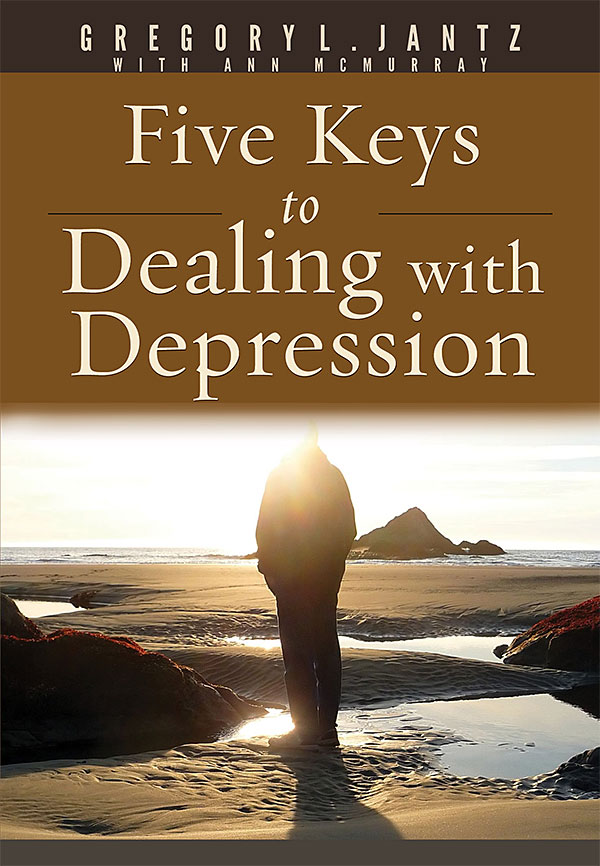

Emotional Balance
Whats wrong with me? When his coworkers found out about Marks promotionsomething he hadnt even applied forthey slapped his back, shook his hand, and gave him high fives. Mark couldnt figure out why he didnt feel that happy. When told about the new job, hed agreed out of shock. Now he smiled back and said thanks to the congratulations, but inside he was in turmoil. What if this didnt work out? What if he couldnt do this more-important job? What if he failed? Everyone else seemed to treat his promotion like the best thing that could have happened to him. Deep down, Mark was terrified it would be the worst. Feeling slightly sick, Mark wondered if he should go home for the day.

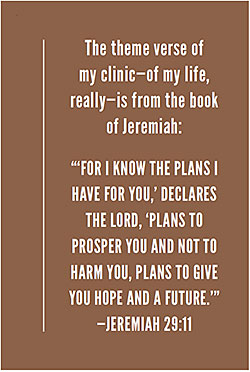
When depression settles into a persons life, emotions become confused. A promotion at work may produce thoughts of despair and fear. Minor daily irritants can become major life hurdles. The joy of others can become a gloomy reminder of inner insecurities. When our inner thoughts are in turmoil, we have much greater difficulty navigating daily life and our emotional imbalance can tilt toward depression. The demands of life can make us angry, fearful, resentful, frustrated, and irritated. Life produces an emotional response and for some, depression becomes that response.
Depressed people have lost their emotional equilibrium. All of us are born with an emotional spectrum, with the capacity to move across what we call positive and negative emotions. The positive side is exemplified by optimism, hope, and joy. The negative side can be represented by anger, fear, and guilt. Of course, there are a plethora of emotional responses in between these extremes, but I have found these positive responses and these negative responses to be the strongest at pulling people one way or the other across the emotional spectrum.
People who are depressed live pulled to one side of the emotional spectrumthe negative side. Their emotional responses are so overrepresented by anger, fear, and guilt that they have lost the ability to absorb and experience optimism, hope, and joy. Without joy, there is no hope. Without hope, there is no optimism. Without optimism, there is no future. People without a sense of the future become depressed.
This is not to say that anger, fear, and guilt are unnatural. If someone treats us poorly, it is natural for us to feel anger over the injustice. If we are threatened in some way, reacting in fear may save our lives. If we act badly, it is healthy for us to feel guilt. Anger can help energize us to protect and defend ourselves. Fear can motivate us to seek a solution to our danger. Guilt can produce remorse, helping us to change behavior. In proper proportion, they are healthy, appropriate emotions. We have a spectrum of emotions at our disposal to lead healthy, productive lives; and anger, fear, and guilt are on that spectrum. But like many things, too much of them are not a good thing.
Anger Out of Balance
Depression has been described as feeling like a suffocating blanket of apathy, a dark and heavy place that weighs down the soul. Depressed people say life seems grayed-out, as if theyre numb in all their senses, except pain.
In this grayed-out, numbed-out, depression-shrouded life, anger has the power to break through. Look again at some of the yellow and red indicators of depression and notice how anger manifests itself:
Anger has the capacity to break through the suffocating blanket of depression, because anger can be very empowering. Anger brings about energy and passion. But anger also makes you a target. Anger rushes you into situations for which you are not equipped, resulting in frustration and pain. Anger drowns out other responses. Anger exhausts your emotional resources.
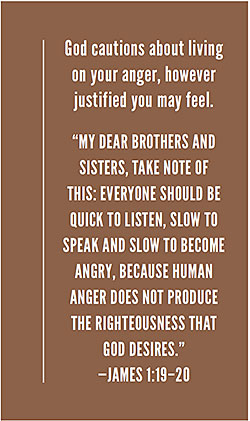
Depressed people, who are used to that numbed-out feeling, can be surprised at how angry they really are. In an effort to control the rage, depressed people can become emotionally anorexic. An anorexic uses the restriction of food and liquid to demonstrate an immense anger and dissatisfaction with life and with self. Ive come to believe that depressed people, in a similar way, have learned to restrict the expression of emotions to demonstrate an immense anger and dissatisfaction with life and with self. A depressed person then is not a person devoid of emotion; a depressed person is often someone who is filled with so much strong, negative emotion that the only way to cope with feeling so bad is to try to feel nothing at all.

